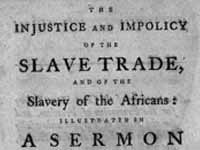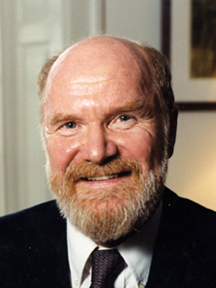The following is the conclusion of a presentation I made on Monday at
"In Search of the Free Methodist Soul III," a symposium hosted by the Free Methodist Historical Society in Indianapolis. The theme of the event was a phrase often used by John Wesley to describe the applied or outward life of inward holiness -
"justice, mercy and truth." I was honored to present the essay on "justice." After reviewing ways John Wesley and the early Methodists (mid-1700's in England) and B. T. Roberts and the early Free Methodists (mid-1800's in America) went about "doing justice" out of their similar faith orientations, I concluded by reflecting what I imagine sincere justice-making that is incorporated centrally into the life of a Free Methodist member and congregation today might look like, be like...
1. We stop convincing ourselves that justice issues are too messy and complicated to get involved in. We seek to fully understand the nature of particular injustices. We begin to trace their sources in irresponsible or sinful values, actions, approaches, alliances, or habits at personal, corporate, social, and/or national levels.
2. We no longer just hope somebody else is doing something about poverty or human trafficking. We identify how Free Methodists and others are engaging in both relief and redemptive counter to these injustices. We support this work financially and prayerfully. We identify corrupting activities and also commend best practices to our representative church, government, corporate, and community leaders at all levels.
3. We incorporate "doing justice" into the center of our descriptions and proclamations of salvation and discipleship. We reclaim Biblical guidance regarding "doing justice" and forge a fresh Free Methodist spiritual formation with this mandate and heritage at heart. We both preach grace and do justice in our evangelism and discipleship. We incorporate 'justice, mercy, and truth" into our Christian education, discipleship, leadership development, worship, and group life curriculum. Justice is not something talked about one Sunday of the year; it is woven into the texture of our life together.
4. We do not accept at face-value any politically-motivated or fear-based description or solution to social problems or injustices. We exercise a deeper sense of spiritual discernment and broader sense of social responsibility than can be reduced to sound-bytes, slogans, campaigns, and election-cycle political interest action.
5. We are educated and engaged regarding what is being accomplished within the Body of Christ and others regarding historically-core Free Methodist concerns--poverty, human slavery, and women's issues (for starters). We encourage involvement in local and international initiatives like the Christian Community Development Association, the Blueprint to End Homelessness, and the International Justice Mission.
6. We take a global outlook and approach to "doing justice." We move beyond Americanism for the sake of authentic Christianity and our brothers and sisters in Christ around the world. While we address specifically American justice challenges like homelessness, affordable housing, livable wages, affordable health care, and access to quality public education at all levels, we do so within a global perspective. North American and Western lifestyles and choices are linked with the prevention or propagation of global poverty, human trafficking, fair labor, women's rights, and economic domination.
7. We openly commit to solidarity with the poor and the plight of the poorest of the poor in our society and around the world. As best we can, we look at the world through the eyes and experiences of marginalized people and groups. We no longer insulate ourselves from contact with the poor; instead we look for ways to engage the poor with meaning, linking our own lives inseparably with theirs. We visit, develop relationships, and become increasingly aware of the immediate struggles of neighbors. We give more weight to their testimonies and experiences than to politicians and news media sources. We work with neighbors to understand and address poverty.
8. As we act for relief of the poor and vulnerable, we link relief with reform and establish just structures, policies, and opportunities whenever possible. As we give ourselves to salvage lives that have been swept over the proverbial waterfall, just as readily we move expediently to address what has caused people and groups to be swept downstream in the first place. We treat symptoms and we address sources of harm. To modify a well-worn adage: give people fish, teach them how to fish, guarantee their right to fish, and do all in your power to insure that the water upstream is not being polluted so that they can actually eat and sell the fish they catch.
9. We are as redemptively involved in our communities for social reform as we are in our congregations for spiritual formation and revival. Free Methodist spiritual formation encourages active neighboring as well as service to support congregational life. Volunteers serve local justice concerns in balance with congregational outreach ministries. We see the two as complementary, not competitive or exclusionary.
10. We act as responsible investors in global market dynamics. If we invest in the stock market or benefit from stock market investments (such as through tax-sheltered retirement accounts), we do so, as much as possible, without blindly contributing to or benefiting from unjust labor or unethical business practices. We refrain from investments that promote violence, war-making, addictions, or unfair trade and labor practices. We examine local labor and market practices of companies in which we invest and call for social responsibility. When stock-market and multi-national corporate activity is identified as rapacious, it is called to accountability and change.
11. We act as responsible consumers of global products, resources, and services. We see a higher value than the lowest possible retail price tag. We challenge our habits of purchasing and consuming whenever it is known to directly or indirectly feed injustices for laborers and the poor around the world.
12. We refute violence against human beings in all its forms. We speak prophetically to militarism and the violence of unjust war, to be sure. We also reject of the language and norms of violence in our society and world. Alternatively, we engage in, pursue, and encourage methods of conflict resolution and shalom-bearing that are a positive testimony to the power of a holy God whose way is love.
13. We address justice issues in the Spirit and manner of perfect love. Even as we identify injustice, seek to relieve the oppressed, call perpetrators of injustice to accountability, and work for reform, we do so with the redemption of the perpetrating individual or organization in focus. Our very approach and spirit is the key to transformative outcomes. As one early Free Methodist put it: "to find the remedy is easy; successfully to apply it involves the principle of holiness."
14. We show by example and precedent what is possible when people of heart-felt faith and vision creatively engage the call to "do justice." We demonstrate the promise of restorative justice initiatives. We model best practices in socially redemptive ministries and volunteer services. We are proactive instead of reactive. We exemplify to the best of our ability, acting with all the light that we currently, collectively have, the principles of the kingdom of God. We live earnestly the petition we constantly make: "Your kingdom come, Your will be done on earth as it is in heaven."
Read my paper,
"To Break Every Yoke," online... or print it out to share and discuss.










